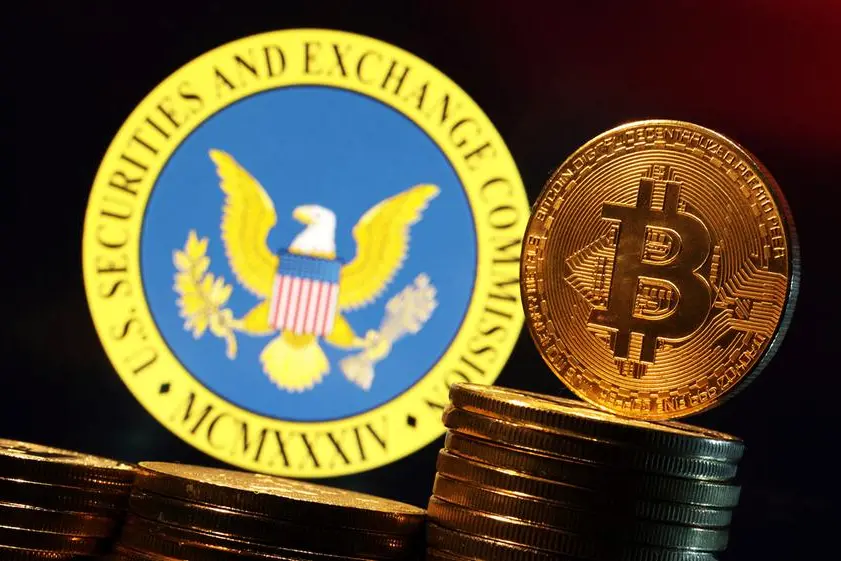The United States Supreme Court (SCOTUS) has handed down opinions that could significantly alter cryptocurrency regulation. Experts believe that these rulings will limit the Securities and Exchange Commission’s (SEC) power over the crypto market, impacting major cryptocurrencies like Bitcoin (BTC) and Ethereum (ETH).
Latest SCOTUS Opinions: A Shift in Judicial Philosophy
The conservative majority on the Supreme Court has made two landmark decisions that could reshape how federal agencies enforce laws. These rulings emphasise a stricter interpretation of statutory authority, potentially curbing the SEC’s ability to regulate the crypto market.
In a 5-4 decision, the Court ruled that federal agencies must operate within the explicit bounds of their statutory authority, setting a precedent that could limit the SEC’s reach. Justice Neil Gorsuch, writing for the majority, stated, “Federal agencies must respect the separation of powers by adhering strictly to the statutory limits set by Congress.”
Implications for the Crypto Market
This shift in judicial philosophy has significant implications for the cryptocurrency market. The SEC has long been viewed as the primary regulatory body for cryptocurrencies, frequently stepping in to enforce securities laws. However, the latest SCOTUS opinions suggest that the SEC’s authority could be significantly curtailed. Michael Sonnenshein, CEO of Grayscale Investments, commented on the rulings: “The Supreme Court’s decisions could herald a new era of regulatory clarity for the cryptocurrency market. If the SEC’s powers are indeed limited, we may see a more defined and perhaps lenient regulatory framework for digital assets.”
Bitcoin and Ethereum: What Lies Ahead?
Bitcoin (BTC) and Ethereum (ETH) stand to be directly affected by these judicial decisions. Both cryptocurrencies have faced regulatory scrutiny from the SEC, with debates over whether they should be classified as securities.
Cameron Winklevoss, co-founder of Gemini, remarked, “The latest SCOTUS opinions could reduce the SEC’s ability to impose stringent regulations on BTC and ETH. This might foster innovation and adoption by providing a clearer regulatory path forward.”
The potential reduction in SEC oversight could lead to increased investor confidence and drive further institutional investment into these digital assets. ETFs, for instance, have already seen substantial inflows, indicating a robust appetite for Bitcoin exposure. Institutional investors are particularly keen, as ETFs allow them to add Bitcoin to their portfolios without facing the usual legal and operational concerns of direct cryptocurrency investments.

Broader Impact on Federal Agencies
The implications of these latest SCOTUS opinions extend beyond the SEC and cryptocurrency. Federal agencies across the board may find their regulatory powers scrutinised and potentially reduced. This could lead to a broader reevaluation of how federal oversight is applied in various sectors.
Professor Lawrence White of New York University’s Stern School of Business, noted, “The Supreme Court’s recent decisions represent a significant check on the power of federal agencies. This could lead to a more balanced approach to regulation, where agencies operate within more clearly defined limits set by Congress.”
Latest SCOTUS Opinions: Regulatory Clarity and Market Confidence
The potential for reduced SEC intervention in the crypto market could bring about much-needed regulatory clarity. For years, the cryptocurrency industry has been mired in uncertainty, with inconsistent regulatory approaches stifling innovation and causing market volatility.
Jake Chervinsky, General Counsel at Compound Labs, stated, “Clear and consistent regulation is crucial for the growth and maturity of the cryptocurrency market. The Supreme Court’s opinions could pave the way for a more predictable regulatory environment, encouraging long-term investment and development.”
The Final Thought
The recent Supreme Court rulings represent a potential turning point for cryptocurrency regulation in the United States. By limiting the SEC’s power, these decisions could lead to greater regulatory clarity and foster an environment more conducive to innovation and investment. As the market responds to these developments, Bitcoin (BTC) and Ethereum (ETH) stand poised to benefit from the newfound regulatory landscape. The latest SCOTUS opinions have set the stage for a new era in cryptocurrency, where clear and balanced regulation can drive growth and stability in this dynamic market.





























